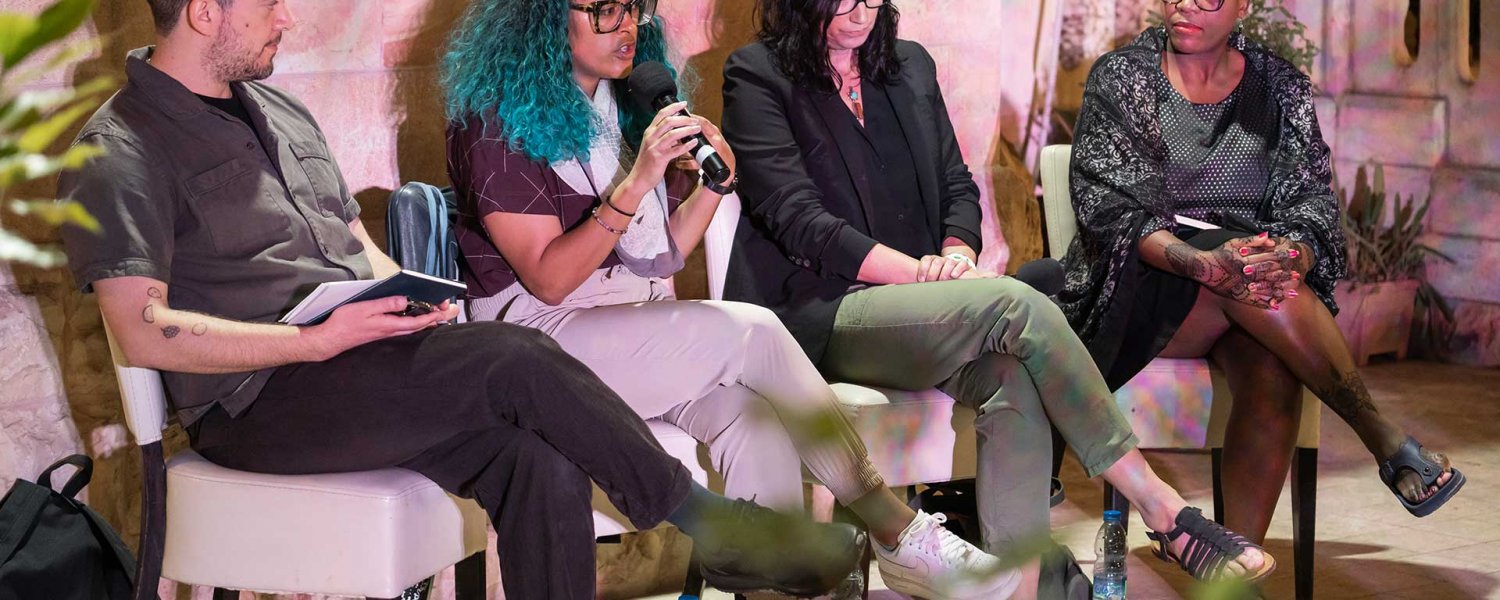The panelists know a thing or two about colonial control and resistance, and each made connections between the causes in their respective places of residence and the struggles of Palestinians against Israeli colonialism.
The discussion highlighted how the mere existence of Indigenous people under colonialism has much to teach us about perseverance in the face of violence. The works and reflections of all three writers demonstrate the collective struggle for survival, knowledge, art, and resistance.
Eve Ewing, an African American writer, scholar, and cultural organizer from Chicago, read excerpts from her collection, 1919, which powerfully expresses the ways in which brutal racial violence in Chicago leaves its marks on Black bodies. Her assertion that some parts of the city are too dangerous for African Americans to go to resonates with the experiences of Palestinians in Jerusalem (and many other places in occupied Palestine). She expressed the longing to find a place of shelter, “a place to die,” and “a place to live.”
Leanne Betasamosake Simpson, a Michi Saagiig Nishnaabeg scholar, writer, and musician from Canada, read excerpts from her works that called for fighting against capitalism and colonialism. As a member of a First Nations group, she explained that dispossession in the name of capitalism does not happen haphazardly; rather, it is a calculated system designed to remove the Indigenous person from the land.
Zukiswa Wanner, a South African novelist, editor, and curator from Johannesburg, shared the parallels of apartheid and racial segregation that she found between South Africa and Palestine. She apologized for the Afrikaaners of South Africa who have become the settlers of Palestinian territories today. Like the other speakers, she spoke up about the dangers of land expropriation (by investors, colonials, and capitalists) in erasing the lives and presence of the Indigenous people.
The panel was moderated by Mahdi Sabbagh, a writer, architect, and urbanist from Jerusalem.




